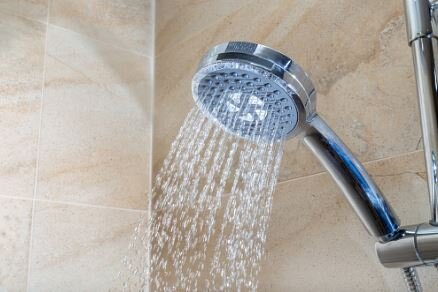Experiencing hard water in homes is largely a regional problem, with the hardest-hit areas in the Upper Midwest. For those who live in a hard water zone, it can be one of the most annoying plumbing problems of them all.
Hard water is tap water with an abnormally high mineral count. The reason this is a regional issue is that geographical features like thick limestone layers come into play. When groundwater bubbles up through these layers, it picks up traces of the minerals on its way to the municipal water supply.
Minerals like calcium, magnesium, iron and even aluminum can give water attributes that make it unpleasant for drinking, unsuitable for washing and damaging to household plumbing. If you suspect you might have hard water, be on the lookout for these telltale signs:
· Spotty dishes. Hard water makes it difficult to rinse away soap and detergent. So whether you hand wash your dishes or use a dishwasher, your water hardness will play a role in your rinse cycle. Dishes rinsed in hard water often have chalky streaks and spots – the traces of soap left behind.
·Soap scum. Just as soap clings to your dishes, it will stick to your tub, tile and shower curtain. Soap scum can accumulate in shower areas with soft water, too, but hard water will cause it to accumulate much faster.
· Laundry problems. Hard water even makes it hard to rinse laundry detergent out of our clothes, and it can prematurely dull bright colors. Clothes washed in hard water often feel scratchy or stiff.
· Troublesome showers. As if all those rinsing problems weren’t enough, you can’t even take a satisfying shower with hard water. The mineral deposits make it difficult to work up a lather, and equally difficult to rinse it away.
· Dry skin. Because of the soapy film that hard water leaves behind in the shower, homeowners tend to experience dry skin problems when they shower in homes with hard water problems.
· Funny taste. Some of the minerals found in hard water have health benefits, but there’s no benefit in the taste department. Hard water generally tastes or smells metallic, sulfuric or sour.
· Appliance damage. Those mineral deposits will eventually build up on just about everything they touch, causing damage that can ruin an appliance. The pieces of equipment at risk of hard water damage include water heaters, refrigerator ice makers, dishwashers and washing machines.
Do you think you have hard water? If so, your household plumbing could be taking on damage every day. Contact NDI Plumbing for expert hard water testing and effective water softening solutions.

